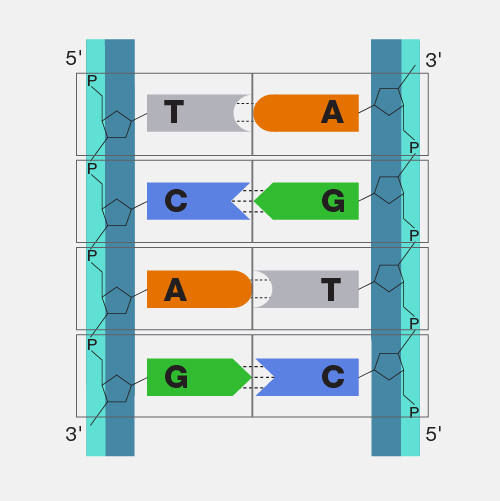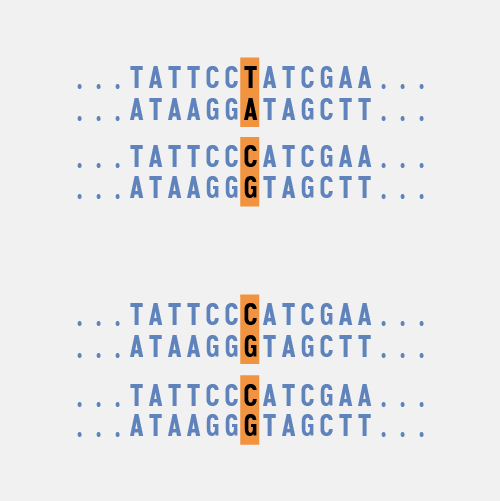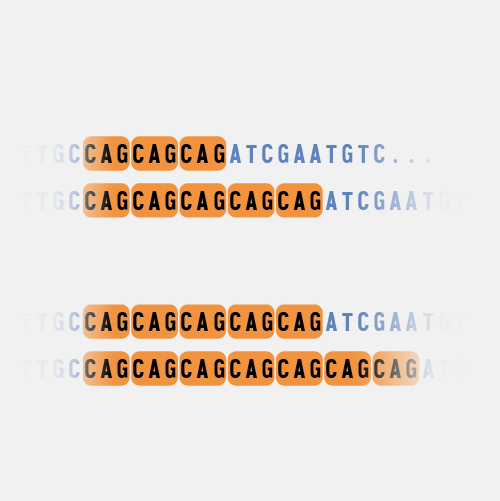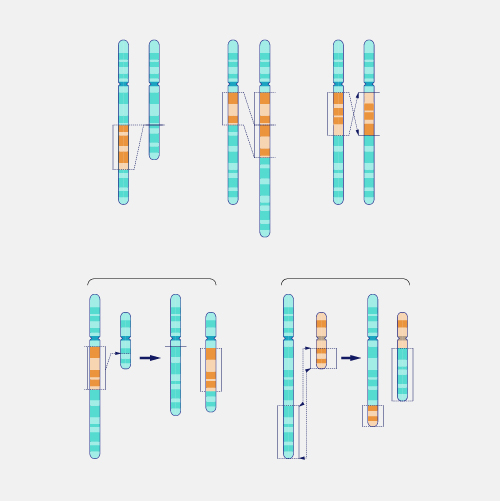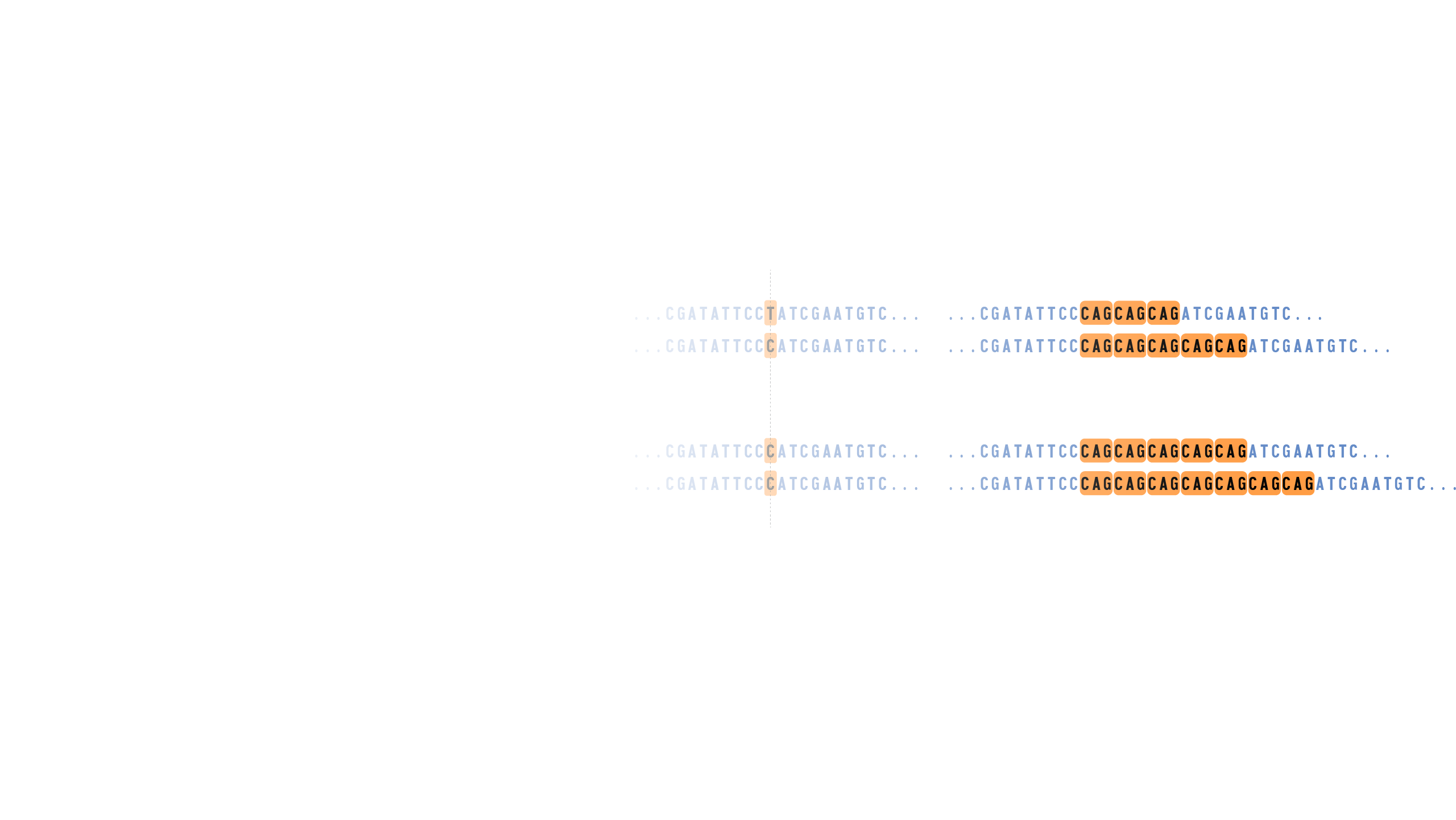
Polymorphism
Definition
Polymorphism, as related to genomics, refers to the presence of two or more variant forms of a specific DNA sequence that can occur among different individuals or populations. The most common type of polymorphism involves variation at a single nucleotide (also called a single-nucleotide polymorphism, or SNP). Other polymorphisms can be much larger, involving longer stretches of DNA.

Narration
Polymorphism. The term polymorphism means many forms. And I love it as an example of how genomics is a series of discoveries that lead to even more questions. When we started sequencing human genomes, we learned that humans are pretty identical, but we saw specific changes between people in one letter at a time, which we now call a single nucleotide polymorphism, or a SNP. When we knew what to look for, we saw that this type of variation was actually all over the genome and we could use it to look at all kinds of genetic questions. We then realized that humans also varied in much bigger chunks of their genome than we thought. So, for example, you might have two copies of an area that has 1 million nucleotides, but I might have four copies or no copies. Polymorphisms are one way that many forms of genomes can lead to many forms of humans.


